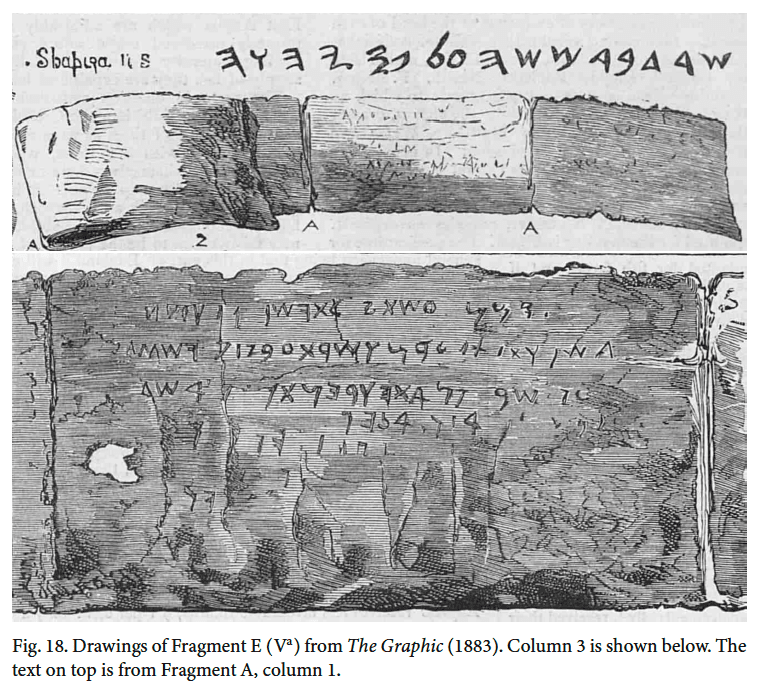Did you catch the recent reports in the New York Times of a major National Institutes of Health study on the benefits of moderate alcohol consumption? It’s a great story of how useful scientific research can be when done with abundant resources and talent, courtesy of $100 million in funding largely from the liquor industry. See “Federal Agency Courted Alcohol Industry to Fund Study on Benefits of Moderate Drinking” by Roni Caryn Rabin, New York Times, March 17, 2018.
It was going to be a study that could change the American diet, a huge clinical trial that might well deliver all the medical evidence needed to recommend a daily alcoholic drink as part of a healthy lifestyle.
That was how two prominent scientists and a senior federal health official pitched the project during a presentation at the luxurious Breakers Hotel in Palm Beach, Fla., in 2014. And the audience members who were being asked to help pay for the $100 million study seemed receptive: They were all liquor company executives.
While the study was wrapped in the normal robes of pure, unbiased research in the quest for truth, the information the New York Times was able to obtain through Freedom of Information Act requests and good investigative work reveals that the researchers behind the study were pitching it to the alcohol industry as a great opportunity to definitively prove that moderate alcohol consumption is healthy. Fortunately, thanks to the scrutiny of journalism (yes, real journalism still happens occasionally!), the NIH has stopped the now-controversial study. See the NYT article, “It Was Supposed to Be an Unbiased Study of Drinking. They Wanted to Call It ‘Cheers’” by Roni Caryn Rabin, June 18, 2018.
It’s “common knowledge” these days that moderate alcohol consumption can be healthy. A little wine in particular is great for your heart., right? Hasn’t science proved that? That was the conclusion that we’ve been hearing for years based on some early studies in the 70s and 80s. But since then there have been some very good reasons to question that story. First, those studies don’t actually prove that alcohol was the reason for the health benefits that were reported. In comparing wine drinkers to those who don’t drink wine, an important detail not properly accounted for is that those who drink wine tend to be wealthier, upper-class people who have better access to health care. It may be their wealth and higher-quality health care that improves health, not their wine. Later reports challenged the claims of health benefits and suggested that any such benefits, if real, would be very small. The previous studies touting health benefits were said to be the result of “confused research.” For example, the apparent heart benefits were most visible in the heavy drinkers, not the light drinkers, but the harms of heavy drinking obviously outweighed the benefits of clearer arteries. There was much to question in the work claiming health benefits to drinking.
Then came the World Health Organization’s 2014 World Cancer Report that claimed that no amount of alcohol consumption is safe because of the increased risk of cancer associated with alcohol. (See discussion at WebMD and Medscape.) So there has been a growing need for the beverage industry to find something they can hang their hat on and claim that their products are healthy after all. And for $100 million, a group of scientists appeared ready to deliver. As Roni Rabin reports,
The study was intended to test the hypothesis that one drink a day is better for one’s heart than none, among other benefits of moderate drinking. But its design was such that it would not pick up harms, such as an increase in cancers or heart failure associated with alcohol, the investigation found.
Scientists who designed the trial were aware it was not large enough to detect a rise in breast cancer, and acknowledged to grant reviewers in 2016 that the study was focused on benefits and “not powered to identify negative health effects.”
“Clearly, there was a sense that this trial was being set up in a way that would maximize the chances of showing a positive effect of alcohol,” Dr. Collins said last week as he accepted his advisers’ recommendation to terminate the trial.
“Understandably, the alcoholic beverage industry would like to see that.”
Of course, the scientists seeking big bucks from the liquor industry didn’t exactly guarantee that the desired result would be delivered. But they certainly created that hope and expectation. And they allowed the industry to work with them in designing the study. And guess what? The study was designed to appear comprehensive and thorough, while apparently masking the harmful effects of alcohol.
The risk of increased cancer, such as increased breast cancer in women, is a significant harmful effect, but to see it with statistical confidence requires a much longer study than the one planned, and requires a larger sample size, otherwise the effect will be buried in random noise. The selected sample size and duration would enhance detection of expected positive effects in some areas while reducing risk of detecting some key negative effects. Further, while two drinks a day has long been the threshold for “moderate” drinking, the study would involve only one drink a day, which reduces the risk of falls, car accidents, etc. Further, those most at risk for health problems from alcohol would be excluded from the study.
Whatever health benefits might be found would not reflect the real impact on society that “moderate” drinking brings, but would be used to justify increase sales to millions of “moderate” drinkers likely to ramp up their “moderation” and bring a healthy return on the $100 million investment for the “definitive” study. A smart business deal, indeed, accurately foretold in Joseph Smith’s 1833 revelation known as the Word of Wisdom (Doctrine and Covenants 89:4):
In consequence of evils and designs which do and will exist in the hearts of conspiring men in the last days, I have warned you, and forewarn you, by giving unto you this word of wisdom by revelation….
But wait, what’s the difference between conspiracy and just a clever business model? It’s a fair question, but the more conspiratorial aspects of the story come in the revelation that the scientists were deliberately obscuring the source of the funding they were seeking and were hiding their association the liquor peddlers. Not exactly the above-board transparency and spotless ethics we expect, or at least often hear about, when it comes to academic research.
The health benefits of moderate alcohol consumption have not been proven and may be a myth when the negative issues are fully considered. For now, at least, it looks like the Word of Wisdom is back in style, at least that part about alcohol. And I think “moderate” smoking isn’t a good idea, either. Meanwhile, while doing the best I can with the tidbits we have been given, I will gladly welcome any further updates the Lord may wish to reveal regarding other details (green tea? “paleo” diets? quinoa vs. wheat? any good foods to reduce hair loss?).












Like the Book of Mormon, the temple rituals, and much else, Doctrine and Covenants was cobbled together out of materials provided by Joseph Smith's cultural setting — in this case, the American temperance movement.
It's always glad to see good investigative journalism, though. Thank you, New York Times.
— OK
Delete your blog. You're not supposed to be called a Mormon any more. It was a revelation given to your prophet. Will you obey? It seems important to him. More important than all the other things going on in the news that seem to have an impact on the church. So which is it Jeff? Do you obey the prophet you claim to support? If so, delete this whole blog immediately.
Jeff, have you seen this recent article in the Lancet?
https://www.thelancet.com/journals/lancet/article/PIIS0140-6736(18)31310-2/fulltext#%20
Money quote: "We found that the risk of all-cause mortality, and of cancers specifically, rises with increasing levels of consumption, and the level of consumption that minimises health loss is zero."
Amusing footnote–the list of authors is as long as the article itself.
I read that same article and thought "another score for the word of wisdom".
Anon above, maybe we should change the name of our choir too? Haha
Last Lemming, thanks a ton for the Lancet study. Impressive, comprehensive approach with a remarkable conclusion. The optimum daily amount of alcohol for a healthy life is ZERO. Not one ounce, not half a glass of wine, not even a teaspoon, but zero. There is no overall health benefit to moderate drinking. But there sure would have been if the NIH scientists working with the liquor peddlers hadn't been so easy to expose. Sloppy work spoils another clever business model that almost succeeded. The world is healthier for their incompetence.
What about "barley for all useful animals, and for mild drinks" and "inasmuch as any man drinketh wine or strong drink among you, behold it is not good, neither meet in the sight of your Father, only in assembling yourselves together to offer up your sacraments before him.
6 And, behold, this should be wine, yea, pure wine of the grape of the vine, of your own make."
Not even the Doctrine and Covenants recommended zero consumption.
Yes, Anon 9:45.
Don't get me wrong here — I'm glad to see Jeff putting his trust in modern science instead of the LDS scriptures — but if alcohol is so bad for you, why would God speak of it as such a good thing? At times, wine is associated with drunkenness and disaster (e.g., Noah), but at other times the scriptures portray God himself as speaking of wine quite positively, e.g., in Numbers 18, where God tells Aaron, "All the best of the oil, and all the best of the wine, and of the wheat, the firstfruits of them which they shall offer unto the Lord, them have I given thee."
For those keeping score: Science 1, Revelation 0.
— OK
The science just looks at one important aspect of alcohol use (health impact) and considers it in light of modern society and its risk factors. I can imagine that in an ideal Zion society there would be a role for very moderate use of alcoholic beverages and perhaps there the health impact would be negligible. I don't think that it needs to be an inherently bad thing, but for our day it is for the moment banned, and wisely so.
In a future Zion society, perhaps alcohol will be somewhat like refined sugar: based on health alone, perhaps the ideal daily dose is zero, but there are times when a little can be appropriate and valuable for the enjoyment it brings. Or maybe the health benefits from moderate drinking under those circumstances will be stronger? Who knows? But for now, in our world, the data support the health benefits of our current version of the Word of Wisdom, both for liquor and certainly for tobacco.
OK, you keep repeating that indefensible statement: "Like the Book of Mormon, the temple rituals, and much else, Doctrine and Covenants was cobbled together out of materials provided by Joseph Smith's cultural setting." Yawn. There's no doubt that environmental factors played roles in how some things were developed or influenced, but they do not account for the core of what is there and provide no real explanatory power.
For starters, take a look at King Benjamin's speech in Mosiah 2-5, where we have a remarkably high density of chiasmus. Over a dozen instances of chiasmsus, some quite artful and dense, packed together with a host of other Hebraic poetical structures, while also following the multiple steps of the ancient covenant formulary that were not elucidated until the 20th century. We even have the link between the theme of dust and coronation/enthronement nicely played, in line with Walter Brueggeman's 1967 analysis of the ancient theme of rising from the dust and its relationship to covenant patterns, something not yet recognized in Joseph's day. Which specific elements of Joseph's environment was he drawing upon in crafting this poetic covenant-making masterpiece? Oh, a Protestant revival meeting, right? And can you explain specifically how that could lead to the ancient Semitic masterpiece we find in Mosiah? Your blind faith in the environmental hypothesis is so puzzling.
Chiasmus again? Yawn! Pass the vodka.
Chiasmus, yawn. Hebraisms, inclusio, Semitic word plays, yawn. Authentic Old World names, Old world coronation ceremonies, artful use of themes related to covenant patterns, etc., etc. — YAWN. Archaeological evidence? Yawn. Evidence from witnesses? Yawn. Sleep apnea is a killer — I hope yo can get some help. "
conspiring men and vaccines.
there is a good book written by a mormon on the subject
This comment has been removed by a blog administrator.
Jesus server the best wine to wine drinkers who knew what good alcohol filled wine should taste like.
A excellent retort to the 9:46 AM, September 04, 2018 comment is the 7:09 PM, September 03, 2018 comment: There's no doubt that apologetics plays a role in how some straws were developed for grasping onto, but they do not account for the core of what is there and provide no real explanatory power.
Yawn, ya all have beat these tapirs to death…